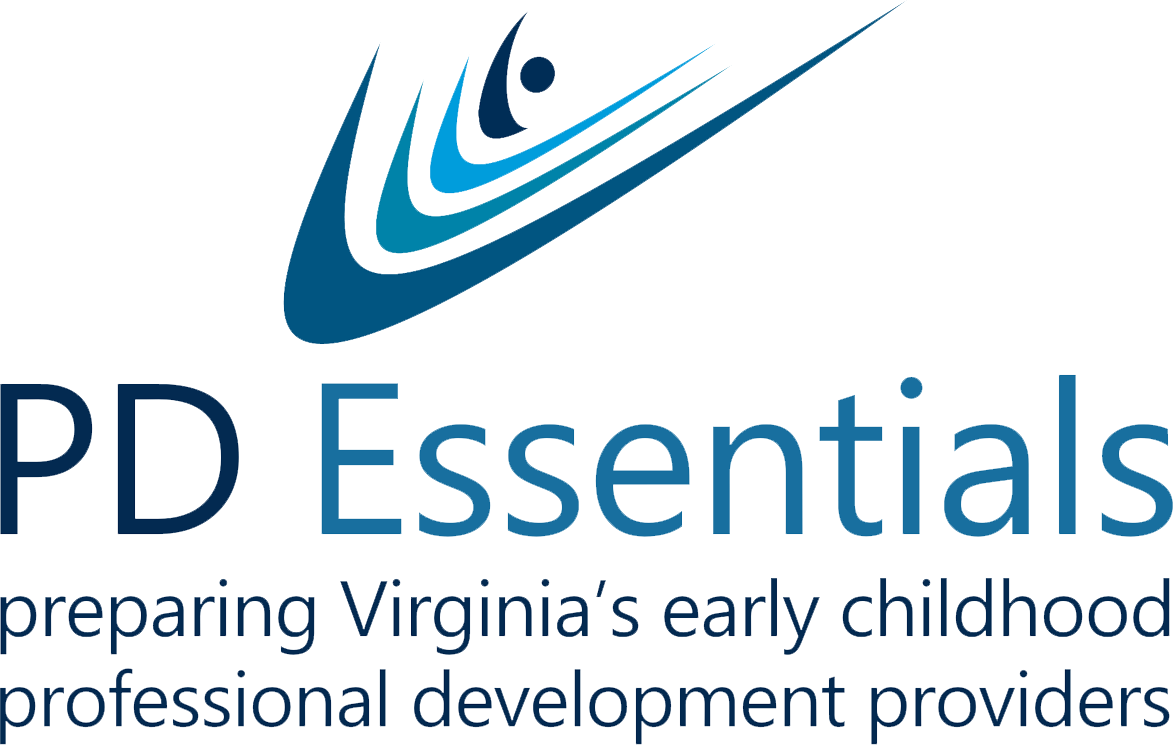The following definitions and key related components guide the work of PD Essentials:
Professional Development (PD) is facilitated teaching and learning experiences that are designed to support the acquisition of professional knowledge and skills and the application of this knowledge into practice. PD incorporates multiple modalities and methods, is interest-based and grounded in evidence-based practices.
Key components of early childhood PD include:
- The “who” of PD (the characteristics and contexts of the learner, the children and families they serve and the PD providers);
- The “what” of PD (what professionals should know and be able to do; generally defined by professional competencies, standards, and credentials); and
- The “how” of PD (the approaches, models, or methods used to support self-directed, experientially-oriented learning that is highly relevant to practice). Practices include face-to-face instruction in a group setting, self-study, Web- or e-based learning, blended learning (i.e., a combination of face to face and Web-based seminars), coaching, mentoring and technical assistance.
Additional Definitions
The definitions below have been adopted by the PD Essentials for use in Virginia. They are taken from the Early Childhood Education Professional Development: Training and Technical Assistance Glossary (2011), a glossary developed jointly by the National Association for the Education of Young Children (NAEYC) and the National Association of Child Care Resource and Referral Agencies (NACCRRA). These definitions also align with those used by Head Start and the National Center on Child Care Professional Development Systems and Workforce Initiatives (PDW Center).
Training is a learning experience, or series of experiences, specific to an area of inquiry and related set of skills or dispositions, delivered by a professional(s) with subject matter and adult learning knowledge and skills. A planned sequence of training sessions comprises a training program.
Technical Assistance (TA) is the provision of targeted and customized supports by a professional(s) with subject matter and adult learning knowledge and skills to develop or strengthen processes, knowledge application, or implementation of services by recipients.
Mentoring is a relationship-based process between colleagues in similar professional roles, with a more-experienced individual with adult learning knowledge and skills, the mentor, providing guidance and example to the less-experienced protégé or mentee. Mentoring is intended to increase an individual’s personal or professional capacity, resulting in greater professional effectiveness.
Coaching is a relationship-based process led by a person with specialized knowledge and skills in content and adult learning (language in italics revised by VCPD) who often serves in a different professional role than the recipient(s). Coaching is designed to build capacity for specific professional dispositions, skills, and behaviors and is focused on goal-setting and achievement for an individual or group.
Consultation is a collaborative, problem-solving process between an external consultant with specific expertise and adult learning knowledge and skills and an individual or group from one program or organization. Consultation facilitates the assessment and resolution of an issue-specific concern—a program-/organizational-, staff-, or child-/family-related issue—or addresses a specific topic.
Preservice or initial training refers to PD in which an individual engages prior to beginning a position. Preservice training may be required for early childhood professionals to serve in a role.
In-service or ongoing training is PD in which early childhood professionals engage to enhance their skills and remain current regarding knowledge and practice in the field. In-service training may be required for early childhood professionals to continue serving in a role.”
